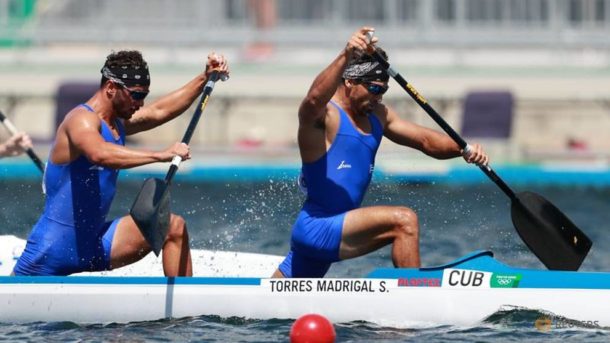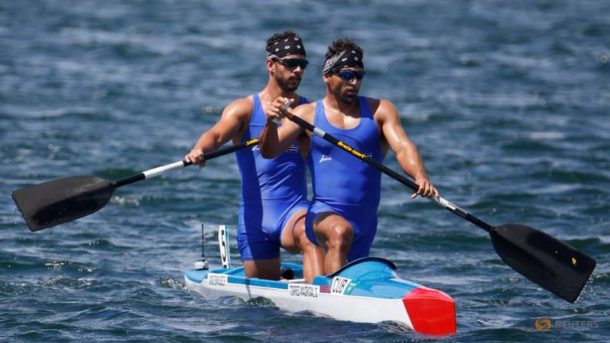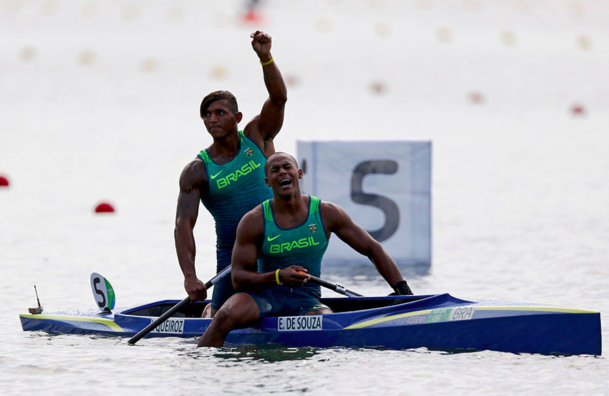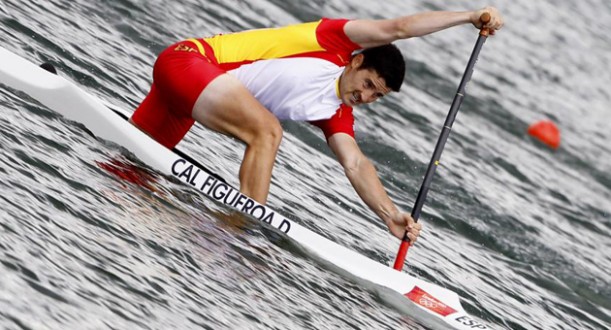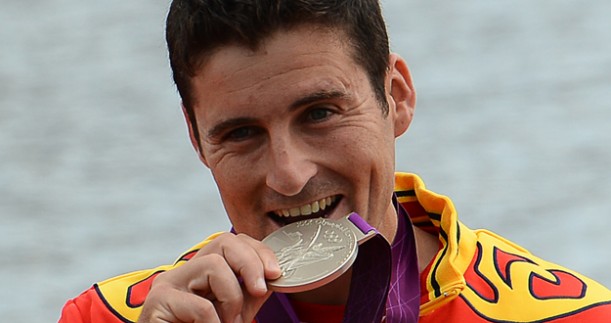
It’s a special first for Isaquias Queiroz…
The 22-year-old Brazilian sprint canoeist has earned his country its first-ever Olympic medal in canoeing.

But Queiroz didn’t just have to train hard to earn that medal at the 2016 Rio Games — he had to survive.
Queiroz, who narrowly lost to Germany’s Sebastian Brendel to win silver in the men’s single 1000-meter canoe race, escaped death three times before he turned 11. At age 3, a pot of boiling water fell on him scalding large sections of his body. Doctors told his mother to prepare for his death, according to Brazil’s O Globo newspaper, but she refused to believe the prognosis, and she was correct.
While Queiroz’s body healed, life still became tougher for him. At age 5, Queiroz, who grew up in poverty-stricken northeastern Brazil, was kidnapped. His father also died that year. Queiroz was eventually returned to his mother unharmed, but tragedy would strike again five years later.
At age 10, Queiroz fell out of a tree and onto a rock while trying to get a better look at a snake hanging from a branch. After being transferred to a larger town’s hospital, doctors found his kidney had nearly split in two. They eventually removed the kidney.
That last hardship stayed with Queiroz for life, not only in the form of a scar, but in the nickname “Sem Rim,” which means “Missing Kidney.”
While doctors warned Queiroz to stay away from sports, the resilient kid had other plans.
“I never thought if I would have a complicated life because of that,” Queiroz tells SB Nation on Monday. “As soon as I could, I came back and had a normal life.”
“Normal” is probably an understatement. With his win Tuesday, Queiroz is becoming a superstar in his homeland, and especially in his hometown of Ubaitaba, where he seized an opportunity at age 11 to get involved in canoeing thanks to a government-funded project.
“From his first contact with the water, I realized that he was good, that he had something special,” Queiroz’s childhood coach, Figueroa Conceicao, told the Associated Press this week.
Queiroz quickly rose through the ranks in the canoeing world. At age 17, he became a junior world champion. At age 19, he won his first world title. He’s since won two more.

Now, at 22, he’s reached the pinnacle of his sport — the Olympics.
“My race was very good,” he said Tuesday (via O Globo). “I lost a little there at the end, but getting the silver medal at my first Olympics is very good.”
Queiroz’s Olympic quest isn’t over either. He’ll go for more medals — he’s still hoping for a gold — Wednesday when he competes for a spot in the men’s canoe single 200-meter sprint, and Friday, he’ll pair up with Brazil’s Erlon Silva for the men’s canoe double 1,000-meter race.
“I feel emotional to represent my country in Rio,” Queiroz told SB Nation. “It’s a dream come true for any athlete, especially for me since it’s my first Olympic Games with the chance of winning three medals in my home country.”
 Fernando Jorge and Serguey Torres have ended a 20+ year Olympic medal drought…
Fernando Jorge and Serguey Torres have ended a 20+ year Olympic medal drought…
